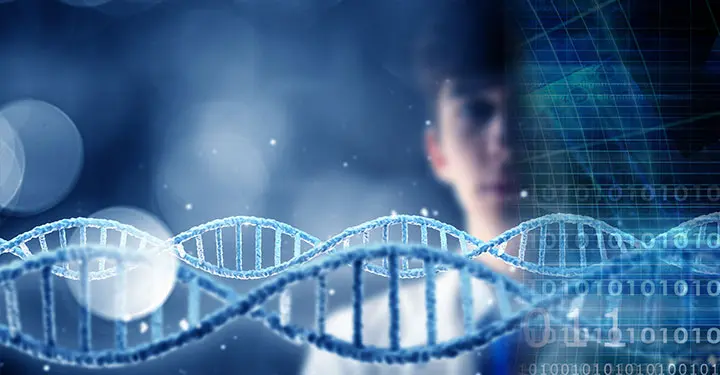Genetic screening has become a new and important part of modern medicine, especially in the early detection of diseases. This process identifies people who may be at risk for a variety of health problems before they develop symptoms by examining their genetic makeup. Genetic screening is an important part of personalized healthcare because it provides doctors with early information, allowing them to manage and prevent problems before they occur.
1. Understand Genetic Testing
Genetic screening examines a person’s DNA to find certain genetic changes or mutations that may make them more susceptible to certain diseases. The test can reveal whether someone is at a higher risk of developing breast cancer, heart disease, cystic fibrosis, and many other conditions. By understanding these genetic risks, individuals and healthcare providers can take targeted steps to prevent and treat them. Genetic screening usually requires a saliva or blood sample, which is then analyzed in a laboratory to find genetic markers that are associated with various health conditions.
2. Benefits of Early Disease Detection
Genetic screening can detect diseases early, which is one of the most important benefits. Traditional disease detection methods often rely on symptoms, which may not become apparent until the disease has developed. Genetic screening, on the other hand, can detect risks before they appear in the body. This early detection allows you to take early action, such as increased monitoring, lifestyle changes, or preventive treatment. For example, if a genetic test shows a higher risk of breast cancer, the person may have more mammograms or consider surgery to prevent breast cancer. Early detection is associated with better disease management, which can lead to better health outcomes and a higher quality of life.
3. Genetic Testing and Family Planning
Genetic testing also has a major impact on the way people plan their families. Genetic screening can help people who want to have children identify genetic diseases that could be passed on to their children. This information is important for making informed choices about family planning, which can lead to options such as genetic counseling, prenatal testing, or reproductive technologies. Families can take steps to protect the health and well-being of future generations by understanding genetic risk. For example, if both parents have a genetic disease, they may want to consider options such as in vitro fertilization and genetic testing of embryos to reduce the chance of passing the disease on to their children.
4. Challenges and Considerations
Genetic screening has many benefits, but there are also some issues. One important issue is understanding how genetic risk affects people’s thoughts and feelings. When someone finds out they are more likely to develop a serious disease, it can cause stress and anxiety. Healthcare providers must provide support and advice to help people process the results and understand the implications. The results of genetic testing are probabilistic and not certain. This means that just because someone is at higher risk of a disease does not mean they will develop it. For this reason, genetic information should be added to other health assessments, such as those that focus on lifestyle choices and environmental factors.
5. Ethics and Privacy Concerns
Ethics and privacy concerns are also important components of genetic screening. Genetic information must be handled and shared with care to protect people’s privacy and ensure that the data is used in an informed manner. Informed consent is an important part of genetic screening because it ensures that people fully understand what the test may reveal and what they are getting into before they agree to undergo the test. To protect personal information and address ethical concerns, it is important to be open and honest.
6. The Future of Genetic Testing
The field of genetic screening is likely to continue to change as technology advances. New developments in genetic testing and analysis will make genetic screening more accurate and applicable to a wider range of conditions, making it accessible and useful to more people. New technologies such as whole genome sequencing and advanced bioinformatics will make it easier to understand genetic risk and improve personalized medicine. It is increasingly likely that genetic testing will become a normal part of healthcare, providing people and healthcare providers with useful tools to prevent and manage disease.
Conclusion
In summary, genetic screening is a very useful way to detect disease early and better tailor medicine to each individual. By giving us information about genetic risk, we can act quickly and provide more effective treatments, ultimately leading to better health outcomes. Genetic screening is a useful tool in modern healthcare, despite its challenges and ethical issues. It can help prevent disease and provide more personalized care. As technology continues to advance, genetic screening may play a greater role in proactive health management, opening up more ways to improve health and well-being.
FAQs
1. What is genetic testing and how does it work?
Genetic screening examines a person’s DNA to find specific genetic differences that may mean they are more likely to develop certain diseases. Genetic markers associated with various health conditions have been found in saliva or blood samples, providing important information about potential health risks.
2. How can genetic testing detect diseases early?
Genetic testing can identify those who are more likely to develop the disease before symptoms appear. This early detection allows people to take preventive and interventional measures, such as lifestyle changes or more regular check-ups, that can improve their health and reduce the chance of the disease getting worse.
3. Why is personalized medicine based on genetic testing a good idea?
Personalized medicine uses a person’s genetic information to tailor treatments that work best for them. This approach makes medical interventions more effective by focusing on genetic changes that cause disease. This makes treatment more targeted and effective.
4. Can genetic testing help people decide how many children to have?
Yes, genetic screening helps with family planning because it can detect genetic conditions that could be passed on to your children. Armed with this information, people who want to have children can make informed choices and explore options such as genetic counseling, prenatal testing, or technologies that enhance reproduction.
5. What issues will genetic testing raise?
Some of the issues that need to be addressed include the psychological impact of discovering genetic risks and the ethical and privacy concerns that arise when genetic information is used and shared. Healthcare providers need to provide appropriate guidance and support and take responsibility for genetic information to effectively address these issues.




